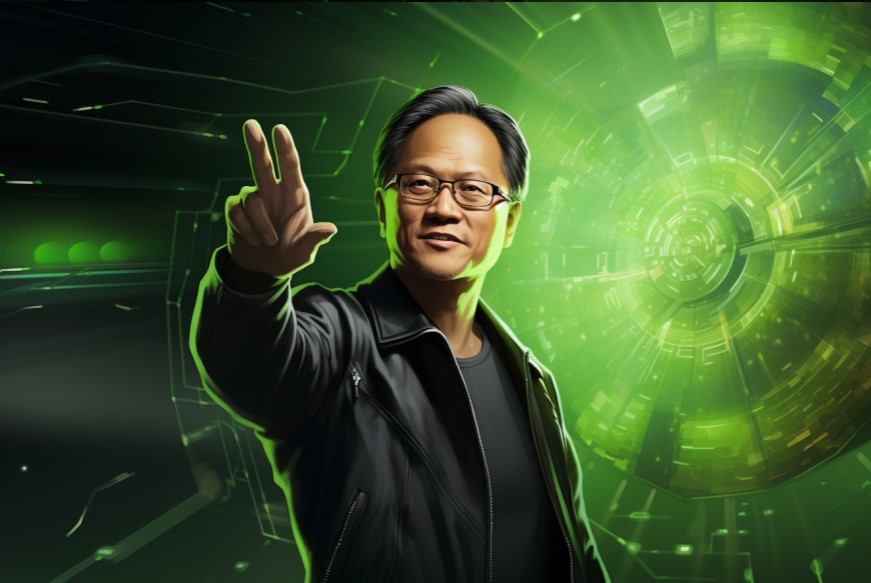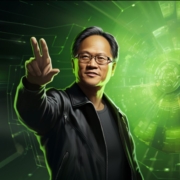Nvidia Could Become ‘Anchor’ Investor in Arm's IPO
Nvidia, the American multinational technology company renowned for its innovations in graphics processing units (GPUs), is currently in negotiations to assume a pivotal role as the 'anchor' investor in the forthcoming initial public offering (IPO) of Arm Ltd. This potential move has sent ripples of excitement, speculation, and even some concern throughout the tech industry, as it could have profound implications for the global semiconductor landscape. Nvidia's involvement as the primary investor in Arm's IPO is a development laden with complexity, implications for competition, and potential for reshaping the semiconductor industry as we know it.
A Storied History of Innovation
Before delving into the current negotiations, it's crucial to acknowledge the historic significance of both Nvidia and Arm in the technology world. Nvidia, founded in 1993, has earned its reputation as a powerhouse in the GPU market. The company's graphics cards have powered everything from high-end gaming systems to scientific research and artificial intelligence applications. Notably, Nvidia's GPUs played a pivotal role in the development of AI, driving the deep learning revolution through their remarkable processing capabilities.
Arm Ltd., on the other hand, has a distinguished legacy of producing energy-efficient microprocessor designs. Founded in the UK in 1990, Arm's intellectual property (IP) is found in countless devices worldwide, from smartphones and tablets to embedded systems and servers. Arm's designs have become the cornerstone of mobile computing, offering a blend of power efficiency and performance that has made it a preferred choice for a wide array of applications.
The Proposed Deal: Nvidia as an 'Anchor' Investor
Now, the news that Nvidia is in discussions to become an 'anchor' investor in Arm's IPO is causing considerable buzz and speculation. An 'anchor' investor typically plays a substantial role by providing a significant investment, thereby lending credibility and stability to an IPO. In this case, Nvidia's involvement would not only inject a substantial amount of capital into Arm's IPO but also solidify a strategic partnership between the two tech giants.
The proposed deal would see Nvidia invest a substantial sum, potentially amounting to billions of dollars, to acquire a considerable stake in Arm. Such a move would have a series of far-reaching implications, not only for the companies involved but for the broader tech industry.
Implications for Competition
One of the central concerns surrounding this potential deal is its impact on competition within the semiconductor industry. Arm has long been recognized for its commitment to licensing its processor designs to a broad range of companies, enabling innovation and competition in the market. If Nvidia, known for its vertical integration strategy, becomes a significant stakeholder in Arm, it raises questions about the future availability of Arm's technology to competitors. Will Nvidia's ownership of Arm limit access to these designs, potentially stifling competition and innovation in the semiconductor space?
This concern is particularly relevant given Nvidia's ongoing efforts to acquire Arm entirely, a deal that has faced regulatory scrutiny and opposition from several quarters, including some of Nvidia's competitors. The combination of Nvidia's GPU technology and Arm's CPU designs could potentially create a formidable technology juggernaut, further consolidating the industry.
Global Regulatory Scrutiny
The proposed deal between Nvidia and Arm has already attracted the attention of regulatory bodies worldwide. Multiple jurisdictions are closely scrutinizing the transaction due to its potential to reshape the semiconductor landscape and influence the competitive dynamics of the industry. Regulatory approval is a significant hurdle that must be overcome for this deal to proceed, and any perceived threat to competition may slow down or even halt its progress.
China, in particular, has been cautious about this potential partnership. The Chinese semiconductor industry heavily relies on Arm's IP, and any restrictions on access to Arm's designs could significantly impact Chinese tech companies' ability to compete globally. Consequently, the Chinese government's stance on the deal is likely to play a pivotal role in its outcome.
Reshaping the Semiconductor Landscape
If the deal goes through, Nvidia's role as the 'anchor' investor in Arm's IPO could reshape the semiconductor landscape in various ways. Nvidia could leverage Arm's extensive customer base, which includes companies from various industries, to further expand its reach in markets such as automotive, data centers, and the Internet of Things (IoT). This strategic alliance could potentially result in more tightly integrated hardware and software solutions.
Additionally, the collaboration between Nvidia and Arm could accelerate innovation in AI and deep learning, as both companies have made significant strides in these fields. Combining Arm's CPU designs with Nvidia's GPU prowess could yield even more powerful and energy-efficient AI solutions, potentially revolutionizing industries that rely on AI technologies.
Potential Benefits and Concerns
The potential benefits of Nvidia becoming the 'anchor' investor in Arm's IPO are undeniable. It could inject a significant amount of capital into Arm, enabling further research and development, as well as supporting Arm's growth in various markets. This, in turn, could result in more advanced and energy-efficient processor designs, benefiting a wide range of industries.
However, there are also concerns, including the potential for market consolidation and reduced competition, as mentioned earlier. It's essential that the deal, if approved, includes safeguards to ensure that Arm's IP remains accessible to a broad range of companies, promoting innovation and competition in the semiconductor space.
Global Impact
The ramifications of this deal extend far beyond the companies involved. The semiconductor industry is a vital component of the global tech ecosystem, with implications for national security, economic competitiveness, and technological progress. As a result, governments and regulatory bodies worldwide are closely monitoring developments related to Nvidia's potential role in Arm's IPO.
Furthermore, the semiconductor shortage that has plagued industries ranging from automotive to consumer electronics has highlighted the critical role that chip manufacturers play in the modern world. Any consolidation or changes in the semiconductor landscape can have far-reaching consequences for industries and economies worldwide.
Conclusion
The news of Nvidia's discussions to become the 'anchor' investor in Arm's IPO is a significant development in the tech world. It has generated considerable interest, not only because of the potential financial implications but also because of the potential impact on competition, innovation, and the broader semiconductor industry.
The proposed deal is a complex and multifaceted undertaking, with regulatory hurdles and global implications. Whether it proceeds and how it is structured will determine its ultimate impact on the tech industry and the world at large. Regardless of the outcome, the tech world will be watching closely, as this partnership between two tech giants has the potential to shape the future of the semiconductor industry for years to come.



